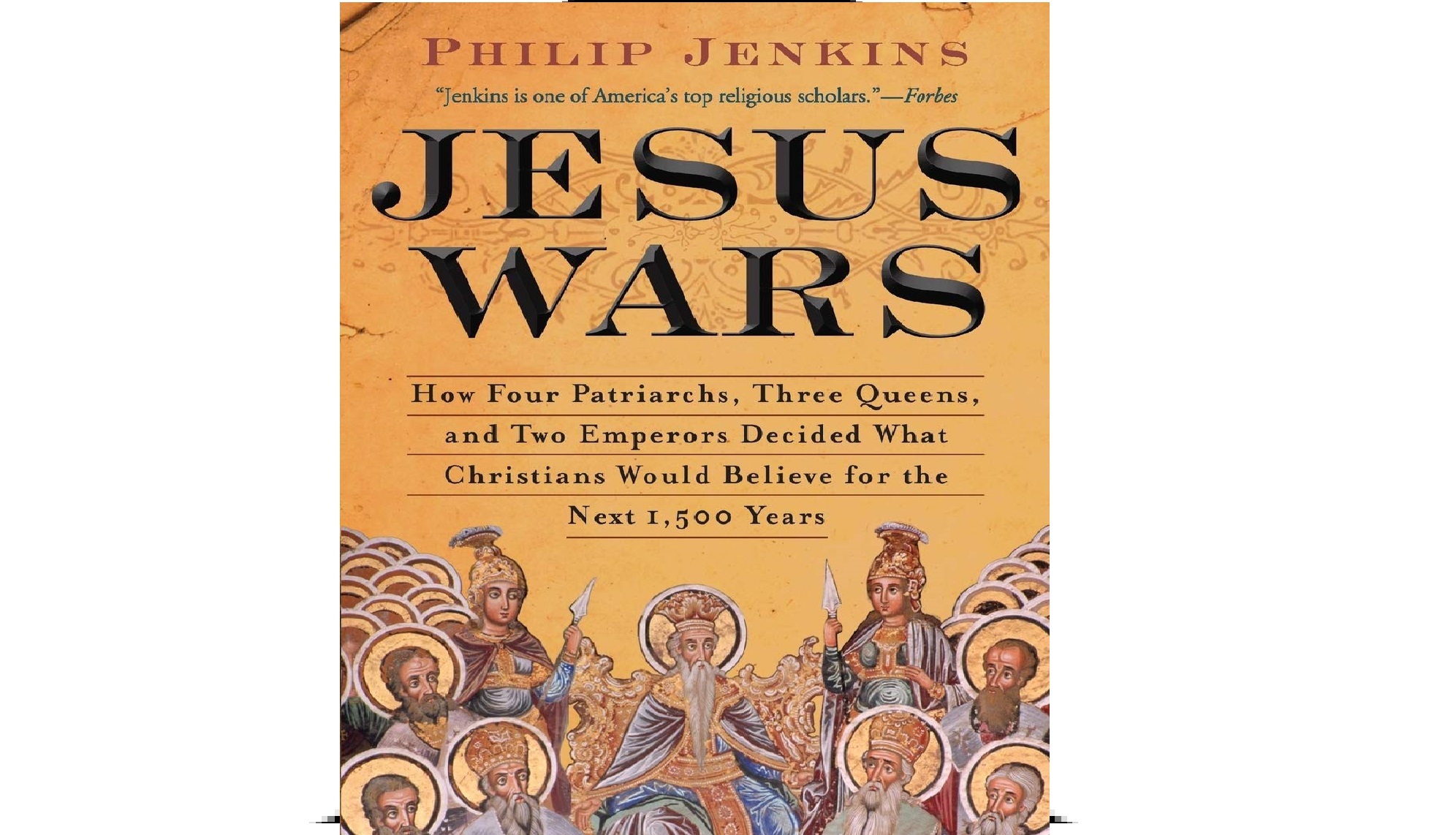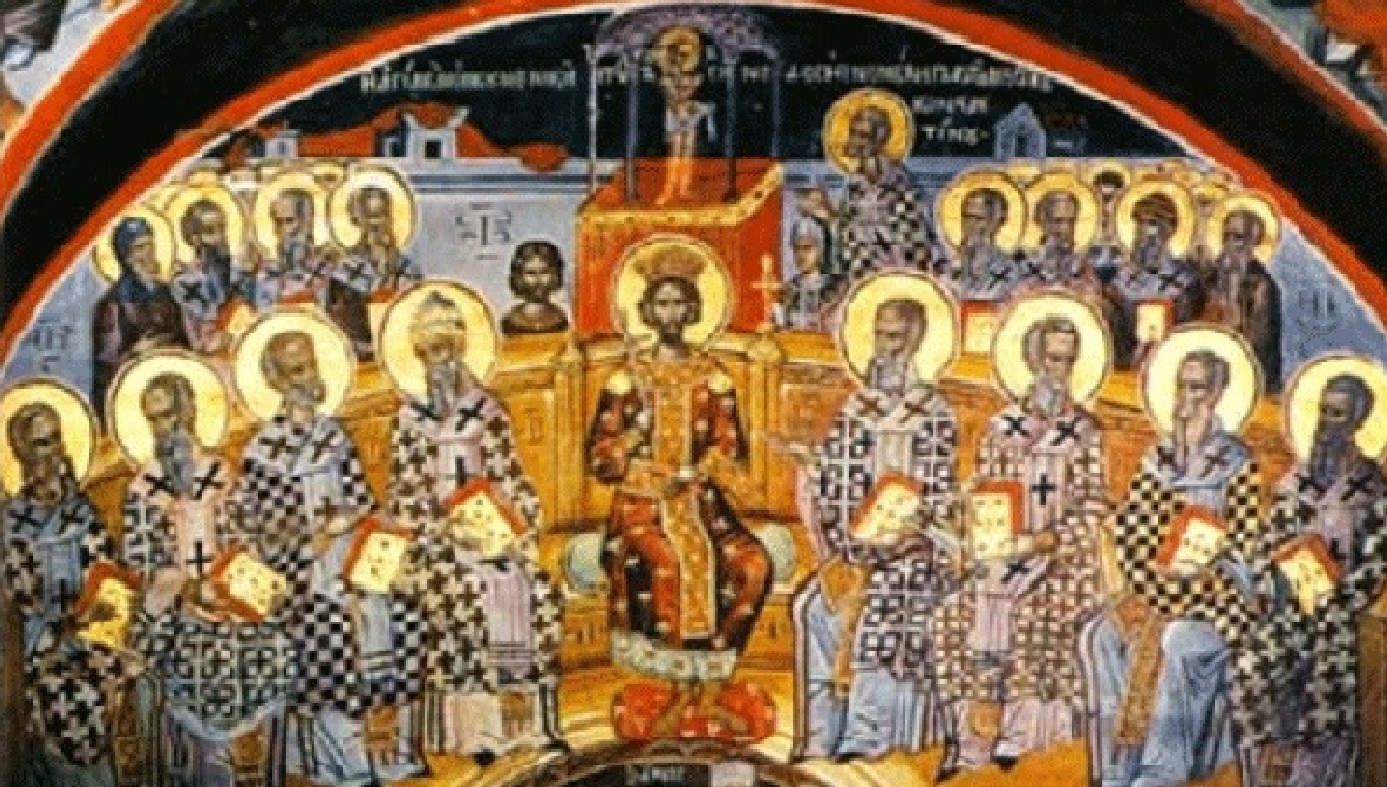
Jesus Wars
June 15, 2022
The Dark Legacy of the Nicene Creed
September 9, 2022John 1:1 According to Keener

From Gospel of John, Commentary 2 vols. (2010) by Craig Keener
God spoke the world into being in Gen 1, and John’s contemporaries continued to celebrate this OT pattern. Both early non-rabbinic writers[1] and Tannaim[2] reported that God created the world “only by an act of speech”; indeed, one Tannaitic title for God was “the One who spoke and summoned the universe into being.”[3] Although “this utterance did not receive the connotation of ‘Logos’ in the Philonic sense” and “was not hypostatized,”[4] many have found the background for John’s creative Logos wholly or partly in the creative word of Genesis, whose “beginning” John 1:1 evokes.[5] Texts connect creation by God’s word with creation by his wisdom[6] or Torah. In one exegetically ingenious early tradition, God’s ten words on which the world was founded (“And he said” occurs ten times in a portion of the creation narrative)[7] represent the Ten Commandments.[8]
Building on Prov 8, it was only natural that subsequent texts should attribute creation to divine Wisdom, for example, in Wis 7:22 (Wisdomas the teknitos of all things; cf. Heb 11:10).[9] And if to Wisdom, then naturally also to Torah, especially among those who became Torah’s most prominent expositors.[10] Not only was the world created by Word, Wisdom, and Torah, it was sustained by Word,[11] Wisdom,[12] and Torah.[13] Later rabbis interpreted this in a very practical sense, rather than simply theoretically: the world was sustained through the practice of Torah,[14] hence in some sense through the righteous.[15] Thus as sages could declare that the world was created for Torah,[16] some could also declare it was created for the righteous[17] or Israel[18] who would practice Torah; some texts claimed that it was created for humanity rather than the reverse.[19] (Greco-Roman thought also speculated on the purpose of creation, whether for gods and mortals,[20] for humanity,[21] or clearly not for that purpose.)[22]
[1] Jdt 16:14 (also mentioning God’s Spirit in this connection); 4Q422 1 1.6; 4 Ezra 6:38; Jos. Asen. 12:2/3, MSS; 2 Bar. 21:4; 48:8; Sib. Or. 1.9, 19; 3.20 (the instrumental dative logo); 2 Pet 3:5; cf. 2 Cor 4:6; 1 Tim 4:4–5.
[2] Sipre Deut. 330.1.1 (trans. Neusner, 2:376); cf. later texts in Gen. Rab. 3:2; 28:2; Deut. Rab. 5:13; p. Ber. 6:1, §6; Deut 33:27 in Targum Onqelos (Memra; cited inMoore, “Intermediaries,” 46); cf. also 1 Clem. 27. Targum Neofiti on the creation narrative emphasizes the creativity of the word of the Lord even more; see Schwarz, “Gen.”
[3] E.g., Mek. Šir. 3.44–45, 49–51; 8.88; 10.29–31; Mek. ÁAm. 3.154–155; Mek. Bah. 11.111–112; Mek. Nez. 18.67–68; t. B. Qam. 7:10; Sipre Num. 78.4.1; 102.4.1; 103.1.1; Sipre Deut. 33.1.1; 38.1.3–4; 49.2.2; 343.8.1; ÂAbot R. Nat. 1, 27, 37 A. In later texts, cf. the translation “by whose word all things exist” in b. Ber. 12a, 36ab, 38b; 40b, bar.; 44b; Sanh. 19a (pre-Tannaitic attribution); p. PesaOE 2:5; Gen. Rab. 4:4, 6; 32:3; 55:8 (all Tannaitic attributions); Lev. Rab. 3:7; Num. Rab. 15:11; Deut. Rab. 7:6; Ruth Rab. 5:4; Pesiq. Rab. 21:7; Tg. Neof. on Exod 3:14; cf. Urbach, Sages 1:184–213; Marmorstein, Names, 89 (comparing also a Sumerian psalm).
[4] Urbach, Sages 1:212.
[5] E.g., Smith, John, 23.
[6] Wis 9:1–3.
[7] Danby, Mishnah, 455, lists them as Gen 1:3, 6, 9, 11, 14, 20, 24, 26, 29; 2:18, but they could be identified differently.
[8] M. ÂAbot 5:1; ÂAbot R. Nat. 31 A; 36, §91 B; 43, §119 B; Gen. Rab. 16:1; Montefiore and Loewe, Anthology, 399, §1092, also cite Pesiq. Rab. 108ab; cf. “The Samaritan TenWords of Creation” in Bowman, Documents, 1–3.
[9] 2 En. 30:8 (human creation—A, J); 33:3 (planning all creation—A, J); t. Sanh. 8:9 (allegorically interpreting Prov. 9:1); ÂAbot R. Nat. 37 A (among seven things); b. Ïag. 12a (ten things probably corresponding to ten words in the m. ÂAbot 5:1 tradition); Sir 24:3–12 (alluding to Gen. 1; see Kim, Origin, 115). See further Witherington, Sage, 108–11; many scholars view this as part of the background for John 1:3 (e.g., Bury, Logos-Doctrine, 27).
[10] M. ÂAbot 3:14; Sipre Deut. 48.7.1; ÂAbot R. Nat. 44, §124 B; Exod. Rab. 47:4; Pirqe R. El. 11 (in Versteeg, Adam, 48); Tanÿuma Berešit §1, f.6b (in Montefiore and Loewe, Anthology, 170–71, §454; Harvey, “Torah,” 1236); cf. Urbach, Sages, 1:196–201, 287. Some later rabbis went so far as to attribute the world’s creation even to specific letters (e.g., p. Ïag. 2:1, §16).
[11] Philo Planting 8–10; Heir 206. God is the bonder of creation in 2 En. 48:6; Marcus Aurelius 10.1; cf. Wis 11:25. For the connection between creating and sustaining, cf. John 5:17. Lightfoot, Colossians, 156, helpfully cites Philo Flight 112 (word); Planting 8 (divine law); Heir 188 (word).
[12] Col 1:17 (sustain; hold together) and commentaries (e.g., Lightfoot, Colossians, 156; Kennedy, Theology, 155; Lohse, Colossians, 52; Johnston, Ephesians, 59; Hanson, Unity, 112; Beasley- Murray, “Colossians,” 174); cf. Cicero Nat. d. 2.11.29 (a Stoic on reason); Wis 7:24 (Wisdom’s movement does not contrast with Plato’s unchanging forms; Plato and others envisioned rapid motion in the pure heavens—see Winston, Wisdom, 182). Cf. 1 Clem. 27.4; Sir 43.26; cf.Wolfson, Philo, 1:325.
[13] B. Ned. 32a, bar.; PesaOE. 68b; Gen. Rab. 4:4 (R.Meir, second century); Exod. Rab. 37:4; Pesiq. Rab. 21:21; perhaps 1 En. 2:1 (cosmic law in the Ethiopic; the Aramaic here is illegible); 72:2; 73:1; 74:1; 76:14; 78:10; 79:1–2; 1QM 10.12–13. This identifying of creative Wisdom and Torah “corresponded in an astonishing way with the Stoic idea of the world nomos and the moral law ordering the life of the individual” (Hengel, Judaism, 1:170; see comments on natural law in our introductory chapter on the prologue).
[14] M. ÂAbot 1:2; b. Ned. 32a, bar., R. Judah; p. TaÁan. 4:2, §13; Deut. Rab. 8:5; thus Resh Lakish (third-century Palestine) declared that had Israel not accepted Torah, God would have returned creation to nonexistence (b. ÁAbod. Zar. 3a, 5a; Šabb. 88a; echoed by later rabbis in Exod. Rab. 40:1; 47:4; Num. Rab. 2:6; Ruth Rab. proem 1); Israel’s existence also depends on observing Torah (Mek. ÁAm. 1.6–7). For practicing the cosmic law, cf. similarly Hengel, Judaism, 1:170.
[15] B. Sanh. 113b, bar.; p. ÁAbod. Zar. 2:1, §1; Pesiq. Rab Kah. 19:6; Pesiq. Rab Kah. Sup. 1:11; cf. m. ÂAbot 1:2, 18; perhaps Isa 51:16; Rom 9:22–23; 2 Pet 3:9. This could apply specifically to Israel (e.g., L.A.B. 44:6–8; b. TaÁan. 3b, third century; Exod. Rab. 2:5; Num. Rab. 1:3; Deut. Rab. 7:7, bar.; Song Rab. 7:1, §1; Pesiq. Rab. 11:5), to Moses and David (Sipre Deut. 26.1.1), or the patriarchs (Sipra Behuq. pq. 8.269.2.5; Lev. Rab. 36:5) such as Abraham (e.g., Gen. Rab. 12:9, Tannaitic; Ruth Rab. proem 7; Pesiq. Rab Kah. Sup. 1:20) or Jacob (Gen. Rab. 96 MSV, Tannaitic); or the sages (Targum to 1 Chr 4:23). The merit of the righteous also preserved localities (e.g., b. TaÁan. 21b).
[16] ÂAbot R. Nat. 31, §66; Gen. Rab. 1:4, 10; 12:2 (fourth century); Lev. Rab. 23:3 (fourth century); Song Rab. 5:11, §4; Pesiq. Rab. 4:3; 21:21; cf.Col. 1:15–16; Davies, Paul, 171 (who seeks to press the earlier m. ÂAbot 1:2 into use). R. Akiba reportedly said this especially of Song of Songs (Song Rab. 1:11, §11), perhaps to keep it canonized. Some thus said that the world was created on the merit of Torah (Num. Rab. 13:15–16; 14:12), and that Torah was greater than creation (reportedly third-century Palestinian source in Exod. Rab. 47:5; Pesiq. Rab. 21:21; 51:1).
[17] 2 Bar. 15:7; 21:24; Sipre Deut. 47.3.1–2; b. Ber. 6b, 61b (R.Hanina ben Dosa); Šabb. 30b; Sanh. 98b (David; Moses; Messiah); Pesiq. Rab Kah. Sup. 1:20 (Abraham); Gen. Rab. 1:4 (fifth century); Tg. Neof. on Num 22:30 (the patriarchs); Tg. 1 Chr. 4:23 (the sages); thus some could say the world was created by the righteous (Ruth Rab. 2:3, late), e.g., the patriarchs (Lev. Rab. 36:4, fourth century).
[18] T. Mos. 1:12–13; 4 Ezra 6:59; 7:11; Sipre Deut. 47.3.1; b. Ber. 32b; Pesiq. Rab. 4:1, 3; 28:2; Targum Sheni to Esth 5:1; cf. b. Ber. 32a; even Torah was created for Israel (Mark 2:27; Sipre Deut. 47.3.2; Eccl. Rab. 1:4, §4, purportedly Tannaitic tradition); the prophets prophesy only for Israel (Mek. Pisha 1.166).Herm. Vis. 2.4 transfers this image to the church (cf. James in Gos. Thom. 12); in 2 Bar. 21:7, the world exists for God. For a survey of purposes for creation, see Moore, Judaism, 1:383.
[19] Cf. 1 Tim 6:17; 2 Bar. 14:18–19; Gk. Apoc. Ezra 5:19 (ed.Wahl, 31); Apoc. Sedr. 3:3 (ed.Wahl, 39); Eccl. Rab. 7:13, §1; Pesiq. Rab. 46:2.
[20] Cicero Nat. d. 2.62.154; Chrysippus in Cicero Fin. 3.20.67; Grant, Gods, 114; on Philo’s use of Stoic tradition here, see Jobling, “Dominion.”
[21] E.g., Chrysippus in Aulus Gellius 7.1.1–2.
[22] Lucretius Nat. 2.167–183; 5.156–194; cf. 5.195–533.
